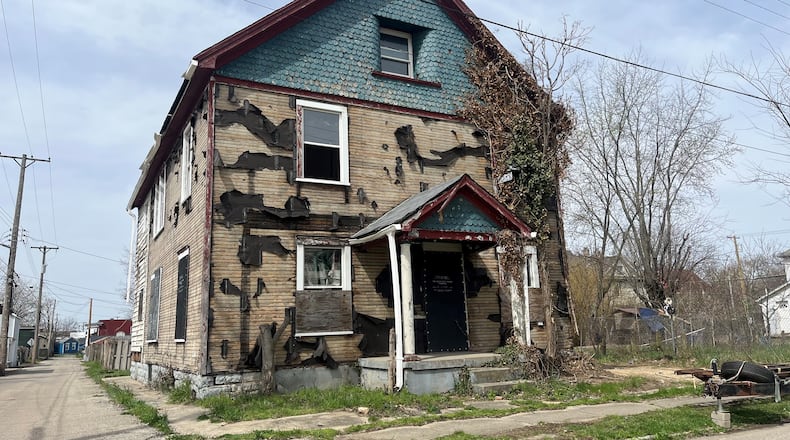“We believe this will not only save structures that would otherwise be demolished, but really introduces a new housing option into the neighborhoods,” he said.
Dayton plans to spend about $22 million demolishing around 1,100 nuisance and troubled structures using federal COVID aid and other funding sources over the next few years.
But the city also wants to divert some structures on its nuisance and pre-nuisance lists away from demolition because they can be renovated into good-quality and habitable homes at a time when there is a big local need for more housing, Kroeger said.
The city is directing the Land Bank to target residential properties for rehab that have historical significance or elements, compelling architectural characteristics or otherwise “make Dayton special,” Kroeger said.
The Montgomery County Land Bank was selected to operate the program because officials say the organization’s mission is to reduce blight, address distressed properties and stabilize neighborhoods.
Kroeger said he doesn’t know how much it will cost on average to rehab each individual vacant property.
However, when pressed for an answer, he said it could cost around $60,000 to $80,000. He stressed those figures are just guesses at this time.
Hilary Browning, Dayton’s budget and grants supervisor, said any proceeds from the sales of rehabbed properties will be put back into the program to invest in renovating additional vacant homes.
The city’s contract with the Land Bank runs through the end of 2026.
In addition to the city’s demolition and vacant home rehab programs, Dayton also plans to spend about $1.5 million helping homeowners repair and renovate their homes.
“We’re doing a lot to improve housing in Dayton,” Kroeger said.
The home rehab, homeowner renovation and the demolition programs are part of the Dayton Recovery Plan. The plan is the city’s spending blueprint for the $138 million it received in federal COVID relief funding from the American Rescue Plan Act (ARPA).
Dayton City Commissioner Darryl Fairchild said he’s glad the city is doing more than just demolishing properties.
He said he doesn’t believe demolition alone will be enough to improve the housing stock.
The city is trying to improve the housing opportunities in the community, said Dayton Mayor Jeffrey Mims Jr.
About the Author


